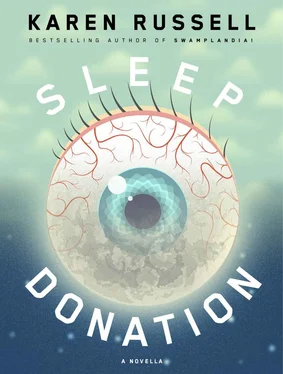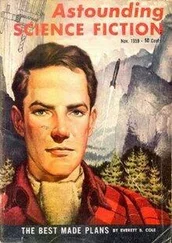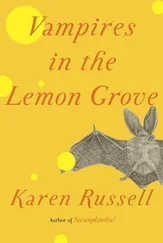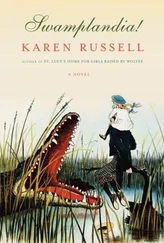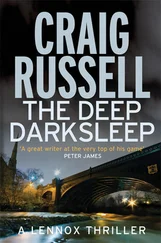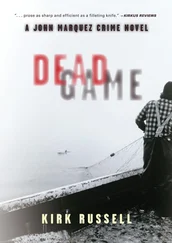“I hate that I’m always scaring everyone. Bullying them into giving.”
“Don’t be. That’s not helpful.”
“That’s a waste of your talents.”
“Your energies, baby. They’re finite.”
“Take that fear and put it out there.”
“Put it in them —”
“Get the hours, Edgewater. People are dying.”
“You’re one of the most valuable members of our team, Edgewater.”
“Look: we want donors to feel good about the gift they are making. But let’s just say, hypothetically, that they feel bad, or scared. Does that change the quality of the gift, Edgewater? No.”
Doesn’t it matter how you ask the question? Or if the tone of your request is closer to a fist than to an open palm? Can the nature of the request corrupt the purity of the gift, the donated sleep? How stupid. How could it. A unit of sleep is a unit of sleep, say my bosses. People have free will, they give if they want to, don’t if they don’t.
I nod, relieved. What they say washes over me, washes in. Oh, let it , I think. Stop making everything wrong .
“What better cause can you imagine?”
“Do the math on that.”
“You’re doing good work, Trish.”
“Keep up the good work, Edgewater.”
“Thanks, guys.”
This is what I want to believe, and now, with their assistance, believe again.
When the Storches return from their D.C. leadership retreat, they are almost unrecognizably gung ho. In our trailer, they mandate enthusiasm for the zillion Corps initiatives. “Field Trips” being one of these:
49n: “In the interests of greater accountability, we want to show Slumber Corps’ donors the direct impact of their sleep donations.”
Proposed venues: the regional sleep banks; the sleep hospices; our downtown hospital, where donors can visit Ward Six, Orexins, and Ward Seven, Elective Insomniacs.
“I vote Ward Seven,” says Rudy. He uses that verb as a courtesy, as if we have equal say in the matter. “You chaperone, Edgewater. We want the Harkonnens to meet the electives.”
“We’re allowed up for that? Non-family?”
“It’s all arranged. It’s a Meet and Greet. You introduce Justine and Felix to the Baby A wait-list.”
“That way, you know, obverse-reverse? They’ll understand exactly what Baby A’s sleep means to these people.” Jim beams at me. “Show them. She’s a miracle. She’s the best hope for these electives.”
Rudy adds, “Don’t fuck it up.”
“Right,” I say.
Rudy lends me his Prius.
The Harkonnens are standing on their lawn when I arrive.
Nobody sits next to me.
Somehow, I got it into my head that Mrs. Harkonnen wanted to meet the electives. That she had a maternal curiosity about these people wait-listed for her daughter’s sleep. So it’s a shocker when Mrs. Harkonnen in her pretty new dress, with its flouncy hemline, the pink and blue flowers, turns from Mr. Harkonnen to me in the boss’s car and says, “You might have to hold my hand, both of you.”
“She’s afraid,” Mr. Harkonnen translates. When he’s forced to talk to me now, whatever he says, it’s like a hoof stirring turf: red blood floods his face. We’ve known each other for four months, me and Mr. Harkonnen. He has never suggested that I call him Felix.
“I’m not afraid, Felix. I just don’t want to embarrass anybody.”
She undoes her seat belt. I hear the click, I panic.
We’re still three miles from the hospital, I tell Justine.
Then she wraps her arms around my headrest, launches forward in a whisper:
“Trish? I do worry that I might get a little emotional.”
“Emotional?”
And in the seconds and minutes that follow, I start to realize how wedded I’ve become to my fantasy of this woman. To me, she is a superhuman. Freakishly calm, freakishly generous, freakishly strong, in her opaque convictions. I check the rearview for confirmation of this impression. In the backseat, Justine’s face looks grainy-white, her shoulders slump. Her face is terrified.
I park the Prius in the Visitor Lot. Ward Seven may be new, but the Visitor Lot looks unchanged to me. There’s a Honda in my old spot, in the shade of the lone tree; years ago, I tell Justine, that’s where I liked to park when I came here to see Dori.
Ward Seven opened without ceremony, no ribbon-cutting, a week after the mass-infection of Flight 109. Seventy-nine people in our city received transfusions of the tainted sleep. Seventeen of them now do their sleeping here. These people have checked themselves into Ward Seven because they are terrified of falling into the dream, and too frightened to sleep at home. They badly want to live; and so, with the aid of hypnotics, under the doctors’ supervision, they get sent back into the hell of the REM-cycle. It’s an unspeakably brave act, say the sleep doctors who work with this population. To ask for that help. To accept the monstrous costs. “Do I wake up rested?” I heard a patient laugh bitterly on the radio. “Are you crazy? Every night is a rematch with his nightmare. But they tell me if I don’t dream at all, I’ll die.” In the Mobi-Van, we have photocopies of several of the Ward Seven electives’ authorization forms, to show our donors. It’s very moving to me, to see their signatures on the consents.
On Ward Seven, there is a glass partition.
“Look at them,” Mrs. Harkonnen breathes.
The room behind the glass is so dark, it takes a moment to see what’s caught Mrs. Harkonnen’s eye. Short beds bracket the shadows. Orderlies walk along the aisle, misting the patients’ heads like cabbage rows, attaching the electrodes that will monitor their sleep. These patients are also research subjects, who submit nightly to polysomnography, who offer up their infected sleep for study.
Staring into Ward Seven, we sway slightly, as if we are out to sea.
“My heart is really pounding,” murmurs Mrs. Harkonnen. So Mr. Harkonnen and I draw around her like parentheses. We each take a hand. Justine turns her blue eyes from Felix’s face to mine with an almost animal faith; the look of a leashed creature who presumes she’s being led somewhere for a reason. It’s the same look, incidentally, that the patients are giving the orderlies.
This Field Trip, I decide, was a terrible idea. I don’t like the firing-squad ratio of thin dreamers to burly male orderlies. I don’t want to watch these poor people go dark, or see anyone get pillow-smothered by the doctors’ hypnotics. I can’t stand the thought of the Donor Y dream slinking through them, awaiting its opportunity to flash into reality. Despite everything I know about the nightmare’s transmission, and the “Facts, Not Fears” campaign; despite the reverb of my own voice chanting panic-antidotes into the blue Corps telephones; despite what I publicly avow to believe about the “contained” contagion, and the humble, human origins of the Donor Y nightmare-prion? I am grateful for this glass. Out here, we’re safe. We are moated by health.
“We’re just going to watch them?” says Mr. Harknonnen. “Like the bears in the damn zoo?”
“I guess so.”
I think we’re all relieved to be on this side of the Ward Seven partition.
When I was a kid, when I was the “good sleeper” in our family, I’d lie on my back and cramp with a wretched pleasure, knowing my sister was awake, and feeling with delicate, bird-footed certainty that my own eyelids would soon flutter, and I would be off. This I labeled “the bad-bad feeling.” It was my relief, and what I can now identify as the baseless smugness of the healthy. I loved my sister, but by age nine I’d learned already to hedge that love with revulsion, afraid that I would catch her problem.
Читать дальше
